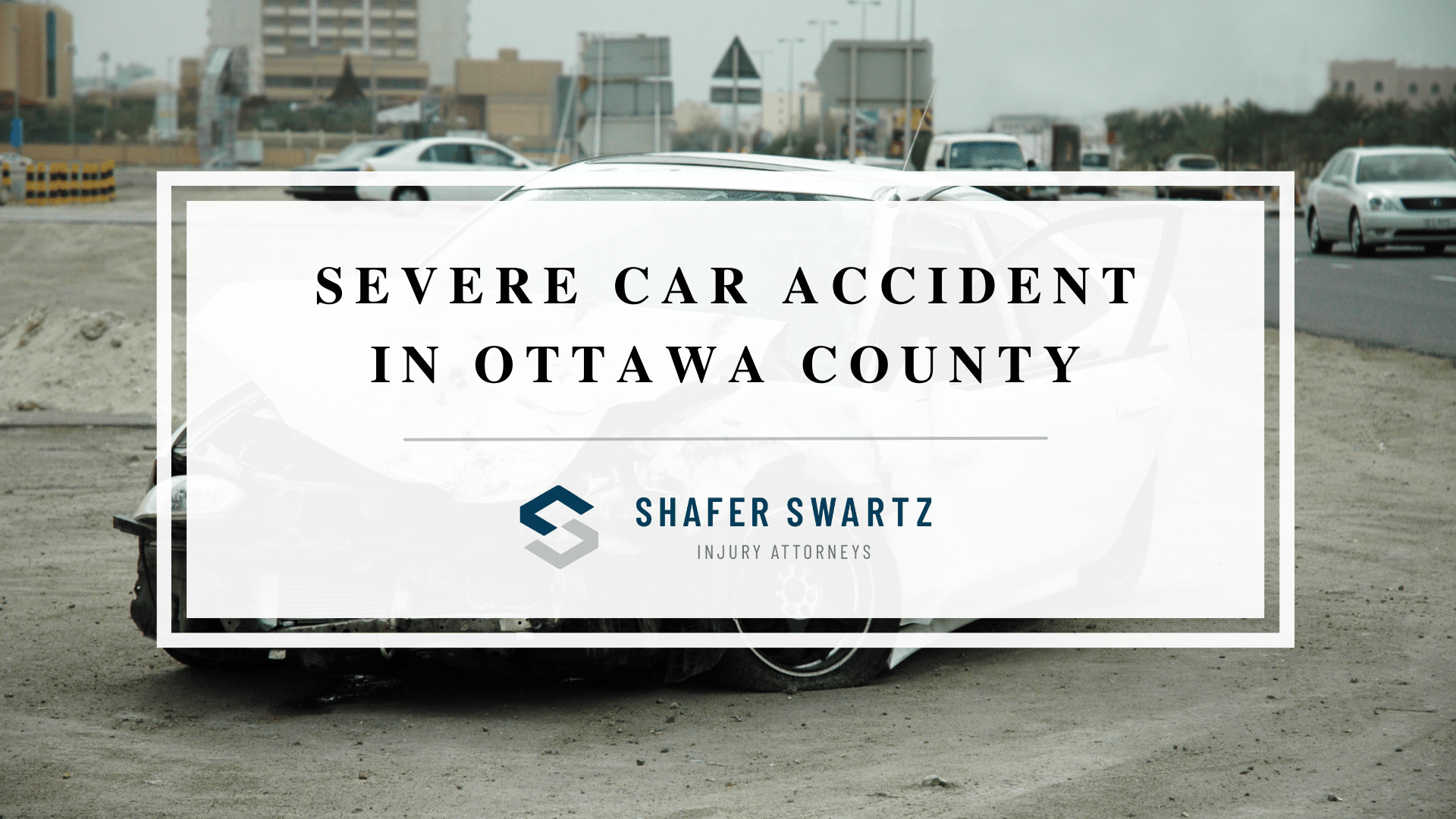
On the morning of Wednesday, September 29th, 2021, a serious car collision occurred in Ottawa County, MI. A Chevrolet Cruze collided with the rear of a tractor while both vehicles were traveling along Gooding Street. The impact caused the tractor driver to be ejected from the vehicle, while the driver of the Cruze was trapped inside her car until she was rescued. Both drivers reportedly sustained critical injuries.
Rear-end collisions are among the most common types of car accidents. These accidents happen when a vehicle crashes into the vehicle in front of it, causing severe injuries as well as significant property damage. When rear-end collisions lead to personal injury, legal questions inevitably arise. Who’s at fault? What compensation might be available?
Let our Muskegon personal injury attorney discuss why rear-end collisions happen, how fault is determined, and how to seek compensation if you’re involved in such an accident.
Why Rear-End Collisions Happen
Rear-end collisions occur due to various factors, which include:
-
- Distracted Driving. Texting, eating, talking to passengers, or fiddling with the radio all take your attention away from the road, increasing the likelihood of a rear-end accident. In fact, a study shows that texting while driving makes you 23 times more likely to crash.
- Tailgating. When drivers follow too closely, also known as “tailgating,” they don’t have enough room to stop safely if the vehicle in front slows or stops suddenly. It’s always best to maintain a safe following distance – at least three seconds behind the car ahead to increase your margin for error.
- Speeding. The faster you go, the less time you have to react to unexpected changes in traffic. Speeding limits your ability to brake safely, increasing the risk and severity of collisions.
- Weather/Road Conditions. Rain, snow, or fog, along with slippery roads, can limit traction and visibility, making it challenging for drivers to stop in time. These conditions demand extra caution and reduced speeds.
- Vehicle Malfunctions. Faulty brake systems, broken brake lights, or other vehicle malfunctions can lead to a vehicle behaving unexpectedly and make a rear-end collision more likely.
Who’s at Fault?
In Michigan, rear-end collisions generally place the initial burden of fault on the driver of the rear vehicle. This is because drivers are expected to maintain a safe following distance and be prepared to stop or slow down as needed. However, there are situations where the front driver may be at least partially liable, such as cases of sudden lane changes or malfunctioning brake lights.
Michigan follows a comparative negligence rule, meaning you can still receive compensation even if you are partially at fault for an accident. But your award would be reduced by your percentage of responsibility. In these cases, it’s best to seek assistance from a local Muskegon personal injury attorney who can guide you through the legal process and help you secure fair compensation for your injuries and losses.
The Importance of Evidence & Investigation
Gathering solid evidence can help you establish an accurate picture of the accident and support your claim for compensation in rear-end collision cases. Key pieces of evidence include:
-
- Police Reports. Official police reports provide vital information about the accident, often including details of the accident scene, statements from involved parties, and the initial assessment of fault.
- Witness Statements. If anyone else has witnessed the accident, their testimony can help establish the sequence of events and confirm or contradict other evidence, further clarifying who is at fault.
- Accident Reconstruction. In complex rear-end collision cases where liability is disputed, experts can analyze the accident scene and vehicle damage to determine how the crash happened.
A competent personal injury attorney in Michigan can help you conduct a thorough investigation and build a solid case to protect your rights, especially if you’re the victim of another driver’s negligence.
Compensation You Can Claim After a Rear-End Collision
If you’re injured in a rear-end accident, depending on the severity, you might be entitled to the following compensation:
-
- Medical Expenses. From emergency care to ongoing rehabilitation, medical expenses can quickly escalate. Compensation should cover all medical costs incurred due to the accident.
- Lost Wages. Time off work for recovery can result in lost income. Compensation should account for both current and future lost wages.
- Pain and Suffering. Physical pain, emotional distress, and diminished quality of life constitute non-economic damages eligible for compensation.
Under Michigan’s no-fault insurance law, your own auto insurance company will cover your medical expenses, lost wages, and specific other losses, regardless of who caused the accident. However, to receive compensation for pain and suffering, you’ll need to file a claim against the at-fault driver’s insurance. If the at-fault driver’s insurance can’t fully cover your losses, you may need to explore other options, such as filing a personal injury lawsuit, to recover the financial support you need.
The Legal Support You Need After a Rear-End Accident
Rear-end collisions can leave a lasting impact on your life. From physical injuries and emotional trauma to missed work and financial strain, the road to recovery can be long and difficult. But remember, if you’re the victim, seeking fair compensation is your right.
Let Shafer Swartz PLC protect your rights and fight for the best possible outcome. Our experienced Muskegon personal injury attorneys can provide you with the necessary legal support and representation you need, ensuring you receive the compensation you deserve. To schedule a consultation, contact us at (231) 722-2444 or here.

